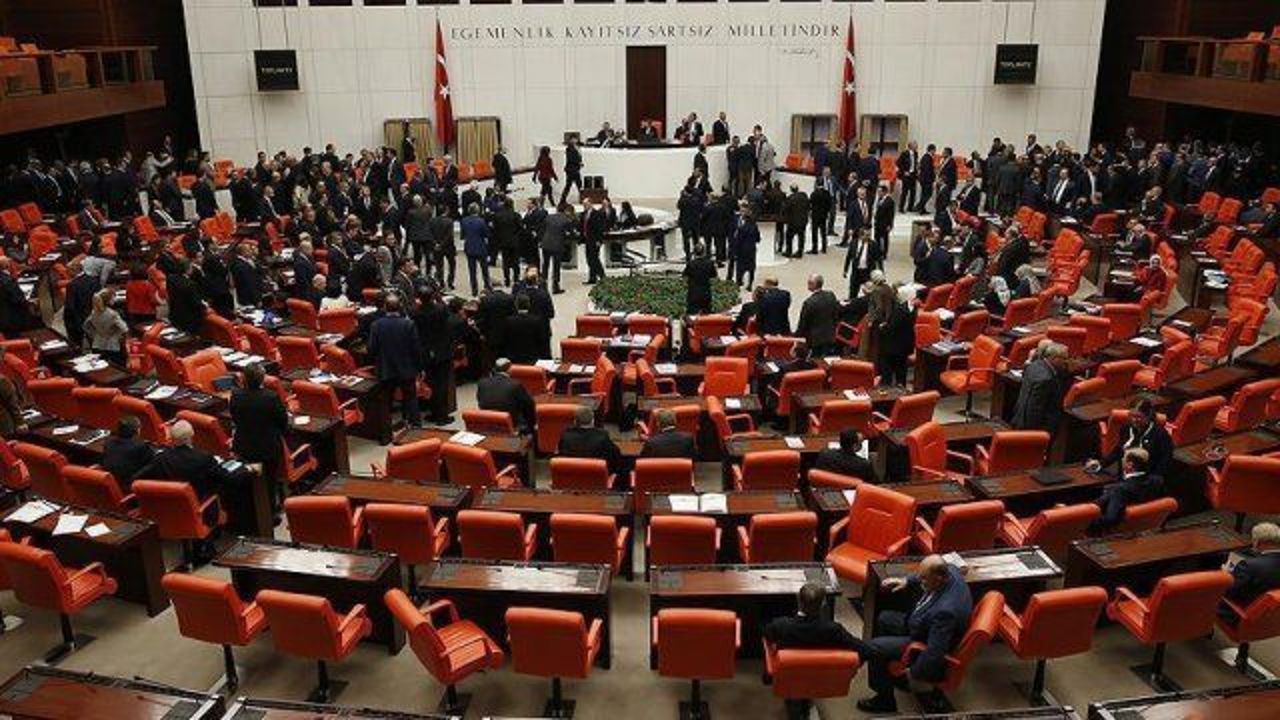Lawmakers begin debating Turkey's constitution
The Grand National Assembly on Tuesday began debating constitutional change that could drastically alter the way Turkey is run -- including changing to a system that would grant wide-ranging powers to the president.

Overnight, 338 of the assembly’s 550 lawmakers voted in a secret ballot to launch the debate on 18 constitutional articles. Of the remaining deputies, 134 rejected the motion, 70 were absent, five papers were blank, two lawmakers abstained and one vote was invalid.
The government hopes the talks will result in a referendum in which the option of replacing Turkey’s parliamentary system with a presidential model will be put to the electorate.
President Recep Tayyip Erdogan and his supporters have argued that Turkey needs a strong presidency to avoid weak government and allow the country to successfully tackle a number of challenges, including terror attacks from Daesh, the PKK and the Fetullah Terrorist Organization. Opponents claim it will weaken democratic checks and lead to increased authoritarianism.
To reach a referendum, the proposed changes must first be passed by 330 deputies. If it gets the support of 367 lawmakers it could pass into law without a referendum, although the ruling Justice and Development (AK) Party has said it will hold a popular vote regardless.
A simple majority must agree to the changes in a referendum.
The AK Party has 316 seats and Erdogan hopes the support of the opposition Nationalist Movement Party (MHP), which has 39 seats and which last month agreed to back the package, will be enough to secure a referendum.
Parliament’s other parties -- the Republican People's Party (CHP), which has 133 seats, and the Peoples’ Democratic Party (HDP), with 59 deputies -- remain opposed to a presidential system. Two independent deputies are split over support for the amendments.
The opening debate saw lawmakers discuss the proposal as a whole as well as the separate articles. A second session will address proposed amendments to the bill.
Among the changes are plans for an elected president to form a government independently of parliament and for the role of prime minister -- typically the person leading the largest parliamentary party -- to be abandoned.
An extra 50 deputies would be elected to parliament, increasing the number to 600. Parliamentary and presidential elections would be held on the same day every five years, instead of the current four.
The president would be limited to two terms of office but will not be required to leave his or her political party. When elected to the presidency in August 2014, Erdogan had to resign as AK Party leader due to the supposedly apolitical nature of the post.
In the judiciary, the Constitutional Court, Turkey’s highest court for constitutional affairs, would be reduced to 15 members while the Supreme Council of Judges and Public Prosecutors, which deals with judicial and prosecution appointments, would add the justice minister to its number.
Addressing parliament late Monday, Prime Minister Binali Yildirim said the changes would “brighten Turkey's future”. He described the current constitution, some of which was written during the period of military rule in the 1980s, as a “product of the military coup”.
CHP Vice Chairman Ozgur Ozel promised to vigorously resist the bill. “Our deputies will use their votes in accordance with the rules of procedure and our constitution,” he said. HDP spokesman Ayhan Bilgen said the party would argue for withdrawal of the proposals.
Anadolu Agency







